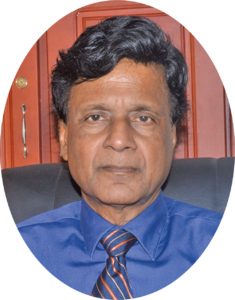By Ravi Dev
Recently, Tacuma Ogunseye of ACDA and the WPA made a rather startling claim in his letter, “I concentrate on the African community, so it can develop progressive politics based on power-sharing” (SN 4-4-2018):
“I recall in the run-up to the historic 1992 General and Regional Elections with the arrival of Ravi Dev and his ROAR party, Dev introduced the doctrine (sic) that Africans cannot speak for Indians and that the WPA was promoting political deception by making the claim that it is a multi-racial party… The 1992 elections resulted in victory for the PPP/C and demonstrated that the Dev doctrine worked to the advantage of that party.”
I recall the facts quite differently. Firstly, Rise, Organise And Rally (ROAR) – against crime – was not even formed until January 17, 1999, following the brutal attacks on Indians in Georgetown on January 12, 1998. Secondly, Ogunseye is confusing the point we made to the political parties then about “what is” and what they thought “ought to be” on voting preferences which came almost a decade before.
Since returning in 1989, I found the political parties making all sorts of claims about their political support. The WPA had an inflated estimation of their support and this played a great part in the break-up of the “Patriotic Coalition for Democracy” (PCD). This had been formed by Opposition parties opposing the illegal PNC regime, and which most had hoped would contest the elections on a single slate.
In August 1991, some individuals, including Baytoram Ramharack, who was completing his PhD dissertation from NYU, and myself, conducted what we believe to be the first poll checking political preferences in Guyana. The poll, conducted under the name “Turkeyen Research and Polling Institute” (TRPI) was published in the SN. Expressed as a per cent of the total electorate of 384,000, and comparing the results to the 1992 elections shows:
The WPA, however, were still convinced they could win the elections with their “real” multi-racial support. A month after the poll, in an SN interview of 9-15-91, WPA’s presidential candidate, Dr Clive Thomas declared, “I really do feel that the WPA will do exceptionally well in this election…even me who is considered the most pessimistic of the leadership in the party about our prospects.” In a December 1991 SN article, a WPA executive on the PCD vehemently rejected the TRPI numbers. Speculating on the influence of race (declining), the youth factor (increasing), new Indian leaders, crowd attendance etc, he declared conclusively: “I would put the PNC a considerable distance behind the WPA…Frankly I believe it (PNC support) to be around 10-12 per cent.”
On September 30, 1992, five days before the elections, I repeated this point in a letter to SN and said, “October 5 will test our hypothesis” (not “doctrine) about voting preferences. The hypothesis was vindicated.
What brought about the colloquy between the WPA and myself and Baytoram Ramharack was the publication of SN report on a September 15 WPA Kitty launch of its manifesto captioned, “WPA says PPP is predominantly an Indian racial party” where Clive Thomas was quoted as saying those words. I said (SN September 19, 1992) that “The WPA was playing a dangerous game” since, as the party claiming ownership of the “multi-racial” space, it chose to only attack the PPP for its Indian support base and not the PNC for its African support base.
I pointed out, “In their constant drumbeat of an “Indian party” winning political power; of Indians controlling economic power and having strong cultural institutions and Africans losing it all…they are repeating the campaign of New Nation 1960-61 which created a mindset in African Guyanese leading directly to the riots of 1962.”

